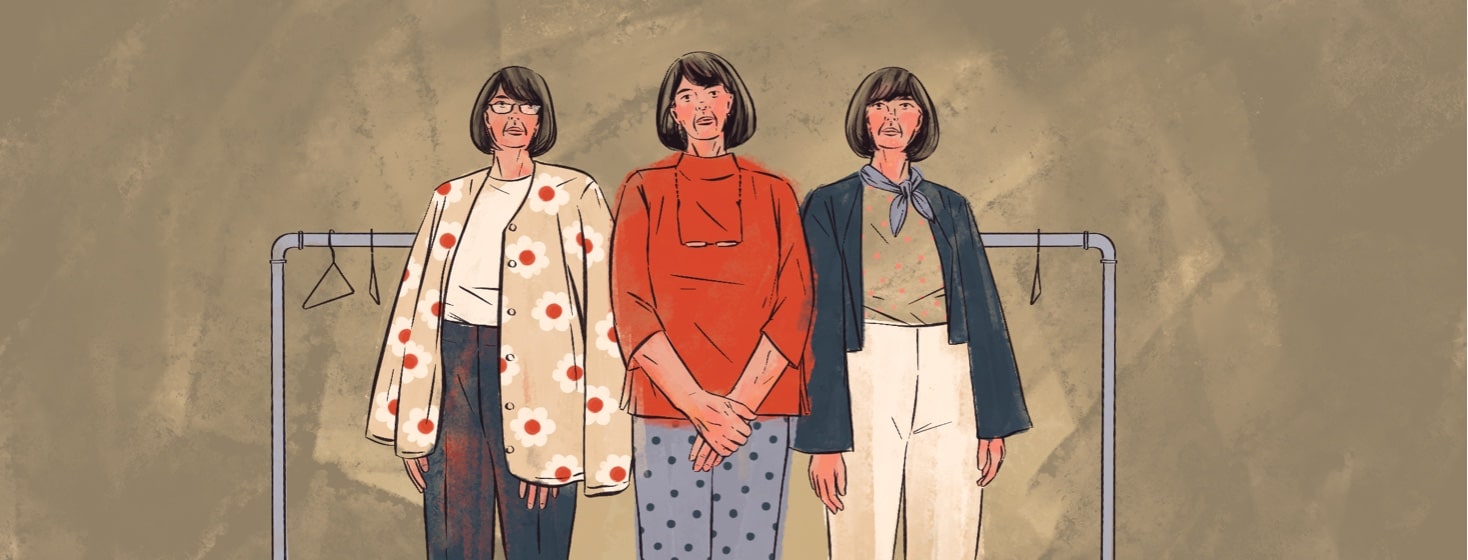How to Dementia Friendly Your Caree’s Closet
Calling all caregivers! Do you agree that what you wear impacts your mood? If you’re like me, you need a wardrobe that’s conducive to your comfort and peace. As a caregiver, I’ve tested out quite a few ways to create a style that invites serene vibes for myself but today I am sharing my favorite tips on the ways I start to get the peace flowing for my caree and their closet.
Tip 1: Declutter - Remove + organize
If you are giving care for someone with Alzheimer's, you might be familiar with some symptoms that your loved one may exhibit such as fidgeting and paranoia. As difficult as these experiences may be to witness, one way to avoid maximizing those difficulties is by decluttering your loved one's closet.
Decluttering the closet for your caree becomes easier when we remove and organize their clothes and items by season. So, for example, winter coats can be neatly packed away during the spring and summer months while bathing suits can be put into storage for the colder months of fall and winter. If any items in your caree’s closet seem outdated or do not fit them any longer, consider donating or selling as other options for organizing. After tidying up, if your loved one with Alzheimer's still continues to exhibit confusion or anxiety then a minimalistic approach may be the best next step to take.
Tip 2: Minimalize - Simplify + style
Offering a minimalistic style is a great way to simplify your loved ones wardrobe to the basic essentials of a capsule collection. Defined as the essential staple pieces that can be repeated weekly and mixed or matched to offer a new look each time worn, a capsule collection has many advantages for your caree.
One of the advantages of having your caree follow a capsule collection is that it creates a signature uniformed look for them. This uniform can be based on a specific number of items such as with the 333 rule, wearing 33 items for 3 months.
Now 33 items may not seem like enough clothes but that is where the next advantage comes in by way of accessories. Baseball hats, neck scarves and even medical IDs will help to keep your caree grounded in peace as they connect the items they wear with their sense of self. The final advantage that a uniformed look offers is through color schemes that cater to your loved ones top 2-3 favorite colors. You definitely want your caree to have fun here in creating their own style and structuring their wardrobe and by curating their pieces to a specific number of items, accessories and favorite colors, you are providing a more enjoyable experience rather than an overwhelming one.
Tip 3: Functionality - Comfort + confidence
Another style option to consider is simplifying the ease of functionality for the items you decide on keeping or purchasing for your caree. It’s true that we all need options. Do you keep the button-up shirt or purchase a zipped-up shirt that looks like a button-up? Do you invest in more pullover tops? Should you stick to loungewear or activewear?
Choices are important because everyone has varying preferences; however, in the case of our caree, the objective is to limit the level of overwhelm. So prepare yourself, dear caregiver, because the answer to the aforementioned questions is simple: Wear it if it keeps them comfortable and confident. Creating comfort and confidence is key to keeping your caree feeling independent and calm when managing the daily ritual of dressing. So if this means a calm confidence is assured by simply increasing your caree's closet space in using a double closet rod extender (to keep their tops on the standard closet rod and their bottoms on the new extender) then so be it!
I hope these tips help you to jumpstart your own ideas in creating a dementia-friendly closet space for your loved one with Alzheimer's!
Care to share any ideas you thought of while reading this article? Comment below, we’d love to hear them!

Join the conversation